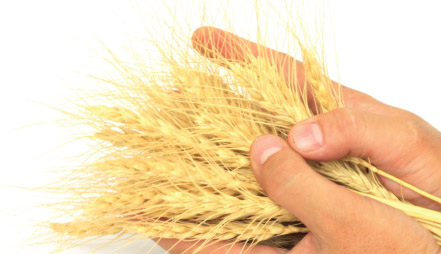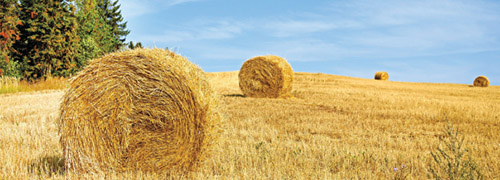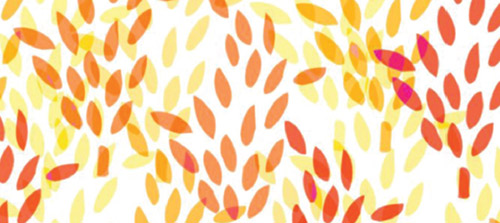|
What is the true meaning of the Feast of Harvest?
|
|
|
글쓴이 :
관리자
|
|
What is the true meaning of the Feast of Harvest?
Exodus 23:14-17
This is the first day of the first week of the second half of 2012. It is significant that the Feast of Harvest, in which we offer our first fruits, falls on this first week. God is most pleased when we offer our first fruits because it means that God is foremost in our thoughts. Although God created the entire universe, mankind was foremost in His thoughts.
For that reason, Jesus Christ shed His blood on the cross for the sins of all mankind (1 John 4:10, 19).

The three feasts ? the great blessings of God
God, who loved the Israelites first and came to them, presented a condition. All the men who were over 20 years old had to come three times a year ? namely, to the three feasts at the appointed place of God.
Among the three feasts, the Passover is the day that commemorates the Israelites’ liberation from their 430-year slavery in Egypt. The angel of God came and killed all the firstborns of Egypt but passed over the homes of the Israelites whose doorposts had the blood of the lamb. This is why it is called the Passover. During this time, the Israelites eat unleavened bread. It is hard bread without yeast. It is bland and almost hard enough to crack one’s teeth. The people of Israel had to eat unleavened bread because they came out of Egypt in a hurry. Through the unleavened bread, God wanted them to understand their time of slavery in Egypt so that they would not be slaves again.
The second feast is the Feast of Harvest. After the end of their 40-year wilderness journey, the Israelites sowed the seeds and offered to God the first fruits of the land of Canaan. First fruits are to be offered with tearful thanksgiving.
The Feast of Tabernacles, also known as the Feast of Booths and the Feast of Ingathering, is the feast in which the Israelites built booths in the field and lived there for a week. It was a time to remember their suffering when they wandered in the wilderness for 40 years. The greatest sorrow is when one does not have a home. Through this, God taught them to obey Him in order that they would not be slaves under someone else or be homeless again.
Human beings did not set these three feasts. God established the feasts because He loved mankind and desired to help them. That is why it is called “the Feast of the LORD” (Leviticus 23:2-3, 23:44). He said, “You shall observe this day throughout your generations as a permanent ordinance” (Exodus 12:17, 42, Leviticus 23:10-21), and “You shall celebrate a feast to the LORD your God in the temple which God’s name dwells” (Leviticus 16:15-16, Exodus 23:14). We complain when worship service goes over 30 minutes, but the Israelites went to the temple of Jerusalem three times a year to spend seven days of concentrating on reading the Bible, listening to the Word, and understanding them. God told them not to worry, for no man would covet their land and home when they went to appear before the Lord (Exodus 34:24).
The Feast of Harvest is the feast in which we offer our first fruits to God.
The Feast of Harvest is on the 50th day after 7 weeks from the Passover, which is on the 14th day of the month of Abib (the first month). That is why it is called the Feast of Weeks and the Day of Pentecost (Leviticus 23:11, 15, 16, Deuteronomy 16:9). After coming into the land of Canaan, all the Israelites did was simply sowing the seeds; yet the land yielded plump fruits. They were not able to contain their thanksgiving for God’s grace. On the first day of the Sabbath after the Passover, the Israelites brought in sheaves of barley from the first fruits of their harvest to the priest, who then waved the sheaves before the LORD for them to be accepted. It is called a “wave offering” because it involves the act of waving (Leviticus 23:11). The wave offering represents the priest setting “me” on the altar and presenting the offering to God, after which the offering is received from God again. Although it is the sheaf of the first fruits?and not the person himself?that was offered, God desired that His people would see this and understand the meaning behind the offering.
We should bring in the first fruits to God with a joyful and loving heart (Deuteronomy 6:5, Exodus 23:19). All that we have is not ours but all belongs to God. After receiving grace, David confessed that all his wealth belonged to God (1 Chronicles 29:12-16). All of his descendants were blessed because he said this.
After seven weeks from the day that they brought in the sheaves of the wave offering, the people were to present a new grain offering to the LORD. The wave offering of two loaves of bread, which were made of fine flour with leaven, represents the promise to God that one will lead a life of holiness. It is a promise that, from this day on, one will not fall into the world, commit sin, or be deceived by the temptation of the opposite sex but will live life according to the Word of God. Let us not forget that the Feast of Harvest is the day when we promise to live a holy and pure life. Without understanding such significance of the feast, simply presenting an offering and saying “I have kept the Feast of Harvest” would be a childish act.

People are always bargaining in their hearts: “What can that person do for me?” “I am good to him because he is good to me.” People constantly form these kinds of calculating relationships. However, God is different. He came to mankind first with unconditional love. The first man Adam disobeyed God and ate the fruit of the knowledge of good and evil. As a result, death came as the wage of that sin (Romans 6:23). But God still loved this fallen mankind and came to earth. The people did not accept Him. He was hungry, shabbily dressed, and trembled from the cold. Even the animals that stayed outside the city to graze during the daytime were brought in through the city gate at night by their owners, but Jesus Christ had to go out of the city with a tired body when evening came because nobody received him (Mark 11:19). This was because there was no one who acknowledged Him. He prayed for all of mankind in the field at night and went into the city again early in the morning to preach the gospel. How thankful we should be that He first loved us (1 John 4:19). God who loves “first” delights in the “first” of all things. God said the Israelites were His firstborn and that the firstborn sons and daughters of Israel were His (Exodus 13:12-13, 4:22). “First thing” and “firstborn” serve as representatives. When God accepts our first sheaf of grain, He acknowledges the rest of our sheaves as having been offered to Him.
How thankful we must be! When we place God as our first priority, He will say, “That’s enough. You brought in the first fruit because you believe and love Me. I have now received everything from you. You keep the rest for yourself.” That is what God does for us. Thus, love God first. If we do God’s work first and believe in Him, we will have blessings for generations to come. Let us seek His kingdom and His righteousness first, and all these things will be added to us.
The first fruits offered to God symbolize Jesus Christ who was raised from the dead (1 Corinthians 15:20). Jesus is the first fruit of all mankind. Just as Jesus became the first fruit of resurrection, we must now become the next fruits of resurrection. God has also granted to the Gentiles the repentance that leads to life (Acts 11:11-18, 2 Corinthians 7:10-16). The Holy Spirit came upon the people on the Feast of Harvest, on the day of Pentecost after Jesus Christ was taken up to heaven. When 120 people gathered and prayed together, the Holy Spirit came upon them. They burnt all the sins they had committed and all their greed with the fire of the Holy Spirit, and they were filled with the wind of the Holy Spirit. On the Feast of Harvest, the first church that believed in Jesus Christ was established in this world. If it were not for the Feast of Harvest, the church would not have been established.
We must not come empty-handed before the Lord.
God said we shall not appear before the LORD empty-handed during the three feasts (Deuteronomy 16:10, 16:16-17, Exodus 23:15, 34:20). We have to give thanks with a tribute of a freewill offering of our hands. If we are miserly in our heart, God will be the same to us. And if God is miserly toward us, we will wither and become ill. Nothing will go well. However, if we offer to God with all of our strength, our household will start to blossom and prosper (Psalms 52:14, 23). We must not hold back our property, health, and strength when it concerns the work of God. We have to do everything for God as we would do for ourselves. God loves a cheerful giver who gives with his or her whole heart (2 Corinthians 9:7). We are not losing out when we give an offering to God. We will get it back with interest upon interest. God does not take the offering for Himself. He does not lack anything. God wants to see our hearts and devotion toward Him. When He sees this, He will give health and blessings to our beloved spouse and children. God will give us strength, and we will not be tired or weak even if we walk in the wilderness for a long time. All we need to do is give thanks to God for this grace. However, mankind does not do it.

Rejoice on the Feast of Harvest with servants, the orphan, and the widow.
God said, “You shall rejoice before the LORD your God, you and your children and your servants and the stranger and the orphan and the widow who are in your midst” (Deuteronomy 16:11). They did not lack even though they gave their food to them. If we help ten needy people, God will fill us with much more than what we gave. That is God’s promise. We have to help the needy as a Christian. If we help the needy and the poor, God will lift us up, and we will not receive judgment at the last day. God will say, “You helped the needy? You don’t have to receive judgment.” If we do not help the needy, we will receive merciless judgment (James 2:13). He who shuts his ear to the cry of the poor will also cry himself and not be answered (Proverbs 21:13).
Oppressing the needy and the poor is a sin. This is because they are also created by God (Proverbs 14:31). If we help the poor, we will not perish for generations to come. How pained are the hearts of parents when their children cannot receive proper education! If we help the poor, this will never happen to us. God knew all men and what was in man (John 2:24-25). He watches our actions. Please help the poor who cannot even eat three proper meals a day (Job 22:6-11, Psalms 18:25-26, Ezekiel 25:11, Matthew 6:15, 18:32-39).
The two loaves of bread that are brought in at the Feast of Harvest
Two loaves of bread made of the first grain are brought in at the Feast of Harvest. These are “two testimonies.” This is the number of testimony, not the number of witnesses. The law requires the testimonies of two men. Jesus said to the Israelites who did not believe Him as the Messiah, “I am He who testifies about Myself, and the Father who sent Me testifies about Me.” In fact, the Father and Jesus Christ are one. Jesus said, “I and the Father are one” (John 10:30). When we don’t understand the Word, we might think the Father and Jesus Christ are two separate beings; but once we understand, they are one (John 1:1, 1:14, 17:11, 22, 5:19, 14:9). John 5:7-8 says, “For there are three that testify: the Spirit and the water and the blood; and the three are in agreement.”
The bread we give at the Feast of Harvest is the Word of God. God is the bread of eternal life (John 6:35). Many of Jesus’ disciples who did not understand this whispered among themselves and left Jesus Christ. Jesus asked the twelve disciples, “You do not want to go away also, do you?” Simon Peter answered him, “Lord, to whom shall we go? You have the words of eternal life.” Jesus Christ is the bread of life (Matthew 26:26, John 6:27, 35, 41, 48, 51, 57, 58, 5:24, 8:51, 11:25-26).
God comes first to us the sinners and says, “I am the king of kings and the creator who rules over the universe; don’t worry. You will not die. You will live eternally. I will give the land of Canaan to you as an inheritance.”
No matter how rich we may be, our wealth will not last. Every day, worries of bankruptcy or financial ruin plague us. However, there were no worries in the land of Canaan. There were bugs, spoiled food, and darkness in Egypt, but nothing happened in the land of Goshen where the Israelites lived. People are arrogant, saying that they live by their own strength and knowledge. If so, then why do people become diseased and die? God created the entire universe. Even the bug that can barely be seen with the naked eye has a brain, a heart, and everything else. We can’t help believing in God’s creation.
We exist to give glory to God. We eat for God’s work and He will provide all the things for us. God said not to be worried about what we will eat or what we will put on. The lilies of the field and the birds of the air, they do not worry about what to eat, what to wear. Give thanks to God in everything (1Thessalonian 5:18, Ephesians 5:20, 1Corinthians 1:4, 2 Thessalonians 1:3, Philemon 1:4). We should give thanks to God, but we keep worrying instead of giving thanks to God. If we are not thankful to God and don’t give an offering to Him, our property will disappear. We do not give thanks to God because we are proud and arrogant. God is opposed to the proud, but give grace to the humble (James 4:6). Pride goes before destruction and a haughty spirit before stumbling. Do not commit a terrible sin.

Beloved saints,
God chose us from all of our ancestors, carried us on eagle’s wings, and led us to and guarded us in Pyungkang Cheil Church. This is like a miracle and a dream (Exodus 19:4, Deuteronomy 32:11, Isaiah 40:31). Believe that God will walk with us so that we can flourish and prosper. We always live in hope. There is nothing lacking in the glory and the grace that is to come when Jesus Christ returns. We are not limited by time or space in heaven. If we just think what we want in our hearts the things are there instantly. We are full of God’s glory in that world. There is no sickness and there is no night. The lamb, Jesus Christ, is the light that shines upon all nations so we do not need the sun, the moon, and the stars (Revelations 21, 22).
Transfiguration happens in an instant. Our flesh and spirit will be transfigured faster than the blink of an eye. It is a world where everybody is handsome and beautiful. It is a world where we do not have to commit a sin, and a place where the angels sing for us.
Let us keep the Feast of Harvest well and give thanks and glory to God. We must not look down on ourselves. The knowledge of knowing Jesus Christ is the greatest knowledge in the whole world. Be faithful to the duty given to us in honesty and sincerity, thinking of God who is the first and the last.
I pray in the name of the Lord that this work will take root in our lives and in our families and in all of our descendants for generations to come.
From the Second Lord’s Day Service on July 1, 2012
|
|

